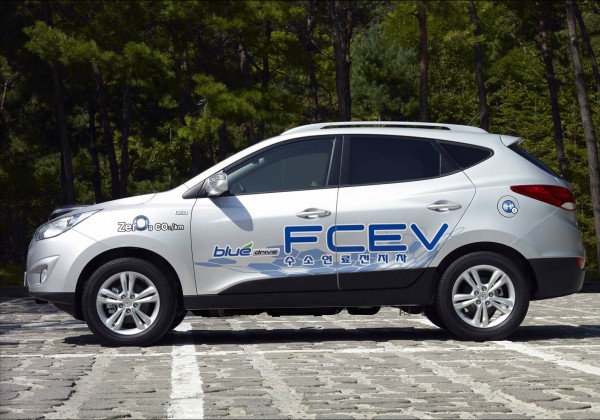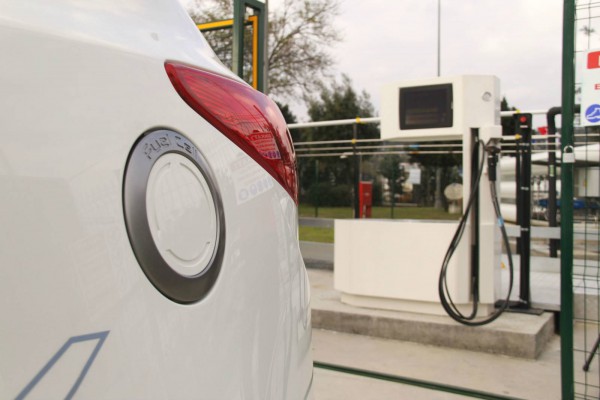The Korean carmaker it`s actual leader in development of fuel cell vehicles. They are the first automotive producer that had started the assembly line production of hydrogen cars. The customers are able to order one of the ix35 fuel cell vehicles.
Hyundai ix35 fuel cell is fueled with hydrogen gas which is stored in special on-board tank. The chemical reaction of the hydrogen powers an electric motor, so as a result the only emissions from the exhaust system are water vapor.
Zero Emission and 594 km Autonomy!
Hyundai has created a vehicle which performance is equivalent to an electric vehicle and its range is about the same to that of a petrol car – It has autonomy for 594 km (369 miles).
This Fuel Cell vehicle accelerates from 0 to 100 km/h in 12.5 seconds and its top speed is 160 km/h. This car can pass 594 kilometers with a single charge. Maybe the most important is that can be refueled with hydrogen in few minutes.
On this project Hyundai Motor Company had spend 14 years of research by hundreds of engineers at Fuel Cell Research and Development center of Hyundai in Mabuk, Korea. More than 2 million miles of road tests in different conditions in Europe, Korea and the United States was passed during the testing period.
Can be Refueled for the same time like Petrol or Diesel Vehicle!
The Hyundai ix35 fuel cell vehicle is based on the current Tucson/ix35 version of the car available with petrol or diesel engines.
The ix35 Fuel Cell can be refueled for the same time it takes to refuel a petrol or diesel vehicle.
The fleet director at Hyundai, Martin Wilson said that ix35 Fuel Cell will give fleet managers a early and unique opportunity to drive the 1st series of Hyundai hydrogen fuel cell and to trial the viability of the vehicle.
ix35 FCEV Specification
|
Length |
4,410 mm |
|
Width |
1,820 mm |
|
Height |
1,655 mm |
|
Driving range on one fill-up |
594 km |
|
Vehicle efficiency |
0.95 kgH2/100km *27.8km/ℓ(NEDC) |
|
Top speed |
160 km/hr (100 mph) |
|
Acceleration, 0 to 100 km/hr |
12.5 seconds |
|
Fuel cell output power |
100 kW |
|
Energy storage system |
Battery, 24 kW |
|
Fuel |
Hydrogen (700 bar, 5.6 kg) |
|
Exhaust gas |
Water vapor |
Feel free to Like, Share & Comment!



